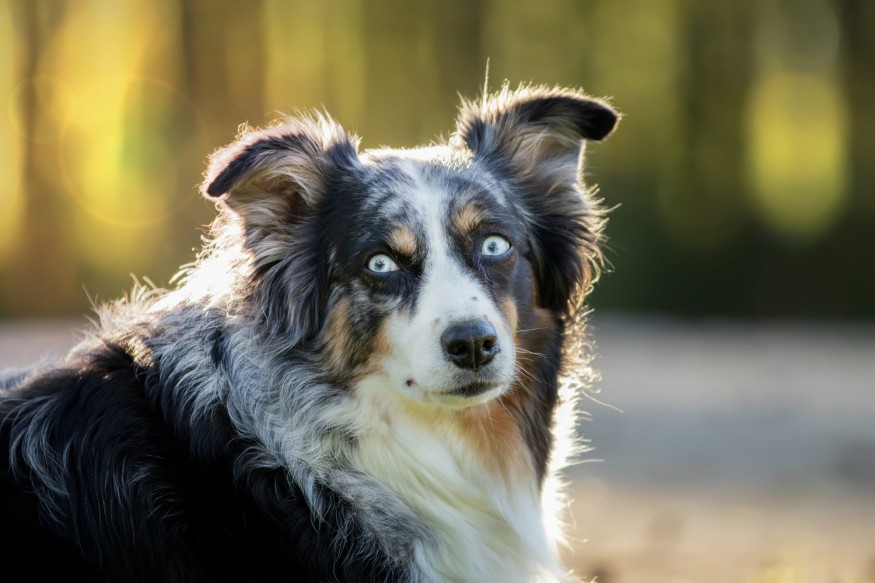
As our beloved canine companions age, their needs evolve, and it becomes increasingly important to prioritize their health and well-being. Recent veterinary studies have shed light on the best practices for caring for senior dogs, ensuring they live their golden years to the fullest.
In this article, we'll explore how you can enhance your senior dog's wellness through lifestyle choices, diet, activity, and supplements.
Understanding Your Senior Dog's Needs
The first step in supporting your senior dog's health is recognizing the unique challenges they face. As dogs age, they become more susceptible to various health issues, such as arthritis and joint pain. This can lead to decreased mobility and a reluctance to engage in physical activities. To help alleviate this discomfort, it's essential to provide a comfortable resting area, such as a soft, supportive bed, and to work with your veterinarian to develop a pain management plan that may include medications, supplements, and gentle exercise.
Cognitive Decline

Another common issue faced by senior dogs. They may experience confusion, disorientation, and changes in sleep patterns. To help maintain cognitive function, provide mental stimulation through puzzle toys, training sessions, and social interaction. Establishing a consistent routine and creating a safe, familiar environment can also help reduce stress and anxiety associated with cognitive decline.
Age-Related Changes
Changes in the digestive system can lead to issues such as constipation, diarrhea, and decreased nutrient absorption. Feeding a high-quality, easily digestible diet that is rich in fiber and essential nutrients can help support digestive health. Probiotics and digestive enzymes may also be beneficial for some senior dogs.
Immune System
Lastly, a dog's immune system may become less effective at fighting off infections and diseases. Providing a balanced diet, regular exercise, and a stress-free environment can help support immune function. Incorporating antioxidant-rich foods and supplements into your dog's diet may also help boost their immune system.
Lifestyle Choices for Senior Dog Wellness
Creating a comfortable and supportive environment is essential for senior dog wellness. As your dog's mobility changes, it may be necessary to make modifications to your home to ensure their safety and comfort. This may include installing ramps or stairs to help them navigate different levels, providing non-slip flooring, and ensuring easy access to food, water, and elimination areas.
Maintaining a consistent daily routine can help reduce stress and anxiety in senior dogs. This includes regular feeding times, potty breaks, and exercise sessions. Sticking to a predictable schedule can provide a sense of security and comfort for your aging companion.
The Role of Diet in Senior Dog Health

Nutrition plays a crucial role in maintaining your senior dog's health. As your dog ages, their dietary needs change, and it's essential to adapt accordingly:
- Age-appropriate diet: Choose a high-quality, age-appropriate dog food that is formulated to meet the specific nutritional needs of senior dogs. These diets often include higher levels of protein to maintain muscle mass, balanced calories to prevent obesity and added nutrients such as glucosamine and chondroitin to support joint health.
- Nutrient-dense whole foods: Incorporating nutrient-rich whole foods into your dog's diet can provide additional health benefits. For example, adding lean meats, such as chicken or turkey, can provide easily digestible protein, while vegetables like carrots and green beans offer essential vitamins and minerals. Always introduce new foods gradually and consult with your veterinarian to ensure they are appropriate for your dog's specific needs.
- Hydration: Ensuring your senior dog has access to fresh, clean water at all times is crucial for maintaining proper hydration. Some senior dogs may be prone to dehydration due to decreased thirst response or medical conditions such as kidney disease. Encouraging water intake by providing multiple water sources, using water fountains, or adding moisture to their food can help prevent dehydration.
Keeping Your Senior Dog Active

Regular exercise is vital for maintaining your senior dog's physical and mental well-being. However, it's important to tailor activities to their abilities and limitations:
Low-Impact Exercises
Engage your senior dog in low-impact activities that are gentle on their joints, such as leisurely walks, swimming, or controlled playtime. These exercises help maintain muscle mass, improve circulation, and promote overall well-being without putting undue stress on their body.
Mental Stimulation
In addition to physical exercise, providing mental stimulation is essential for maintaining cognitive function in senior dogs. Engage them in puzzle toys, nose work games, and short training sessions that challenge their mind and keep them mentally sharp. Adapting these activities to your dog's abilities and gradually increasing difficulty can help prevent frustration and maintain their interest.
Gentle Stretching and Massage
Incorporating gentle stretching and massage into your senior dog's daily routine can help maintain flexibility, reduce stiffness, and alleviate discomfort associated with arthritis and other age-related conditions. Consult with your veterinarian or a canine physical therapist to learn proper techniques and to ensure the stretches are appropriate for your dog's specific needs.
The Benefits of Supplements for Senior Dogs
In addition to a balanced diet and regular exercise, supplements can play a valuable role in supporting your senior dog's health. When considering supplements, it's essential to choose high-quality products that are formulated based on scientific research and to consult with your veterinarian to ensure they are appropriate for your dog's individual needs.
One example of a supplement that can be beneficial for senior dogs is a blend of antioxidants, organic mushrooms, and probiotics. These ingredients work synergistically to support various aspects of your dog's health:
- Antioxidants, such as those found in fruits like acerola, amla, and pomegranate, help protect your dog's cells from oxidative stress and inflammation, supporting healthy organs and a strong immune system.
- Organic mushrooms, like turkey tail, reishi, and shiitake, have been shown to boost immune function, support liver health, and improve digestion in dogs.
- Probiotics help maintain a healthy balance of beneficial gut bacteria, which is essential for optimal digestion and nutrient absorption.
Incorporating a supplement that contains a blend of these ingredients, such as PetMade Longevity Formula, into your senior dog's daily routine can provide a valuable boost to their overall health and well-being, helping them to thrive in their golden years. This comprehensive supplement supports your dog's health across multiple fronts, helping them lead a longer, more active life filled with vitality and happiness.
Conclusion
Caring for a senior dog is a privilege and a responsibility. By making informed choices about their lifestyle, diet, activity, and supplementation, you can significantly enhance your furry friend's well-being in their golden years. Remember, every small step you take towards supporting your senior dog's health is a gesture of love and devotion, ensuring they live their best life by your side.
© 2025 NatureWorldNews.com All rights reserved. Do not reproduce without permission.





